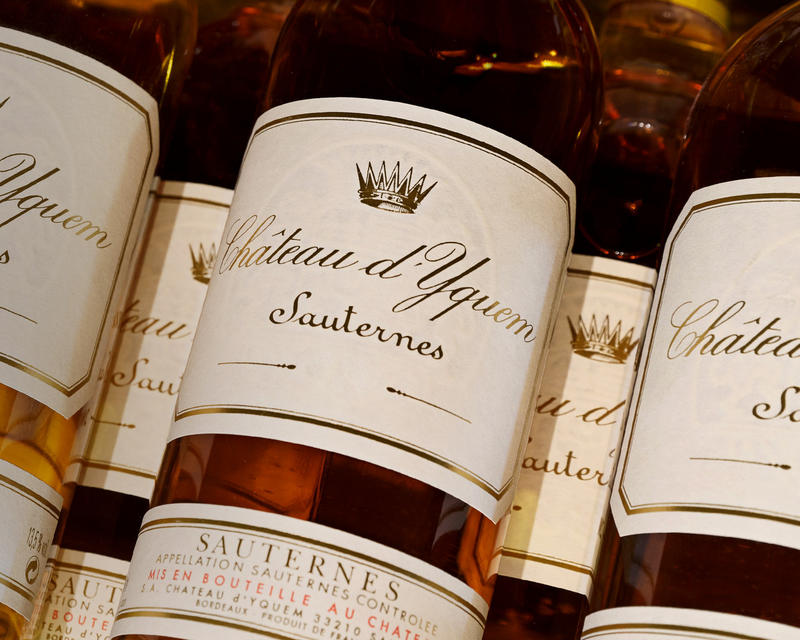Home > Editorial > Inside the timeless world of Château d’Yquem
Inside the timeless world of Château d’Yquem
SIX-MINUTE READ
Winemakers Sandrine Garbay and Lorenzo Pasquini are the latest custodians of Yquem’s centuries-long legacy. We speak to them about what it means to step into this timeless tale, and the vision underpinning the world’s most famous sweet wine.
On the highest hill in Sauternes, in the south of the Bordeaux region, lies Château d’Yquem – the world’s most prestigious sweet wine producer. Its name is synonymous with the upper echelons of fine wine; since 1855, the estate has enjoyed the status of Premier Cru Supérieur – the only producer at this level in Bordeaux.
But Yquem’s influence in the region reaches further back still. The estate was built in the 1590s by the noble Sauvage family, who were granted feudal tenure over the land. In 1711, the family finally obtained full ownership of the estate – and it would remain in their hands until 1999, when it passed from descendant Alexandre de Lur-Saluces to Louis Vuitton Moët-Hennessy (LVMH).
Yquem’s wines are celebrated for their rich, opulent character and incredible ageing ability, accounting for some of the world’s most desirable bottles. Their scarcity only contributes to their prestige: yields are typically as low as one vine per glass, with only the most suitable grapes meticulously selected by hand. A successful harvest depends on having the right conditions for botrytis cinerea – the fungus known as “noble rot” – to proliferate; when the stars don’t align, no Yquem will be made at all.
Today, Yquem’s legacy rests in the hands of Cellar Master Sandrine Garbay and Estate Manager Lorenzo Pasquini. In October 2021, we visited them at the château to discover what it means to step into such a timeless tale.
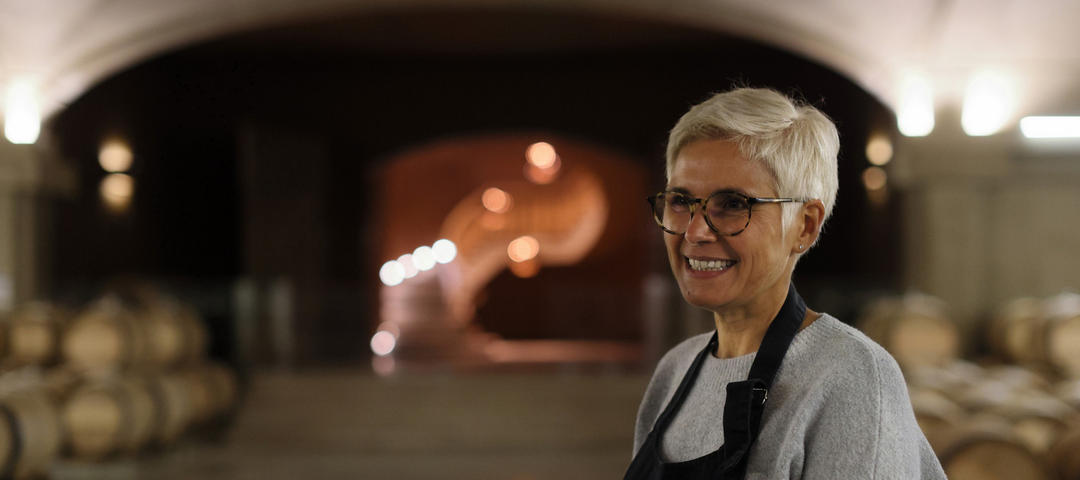
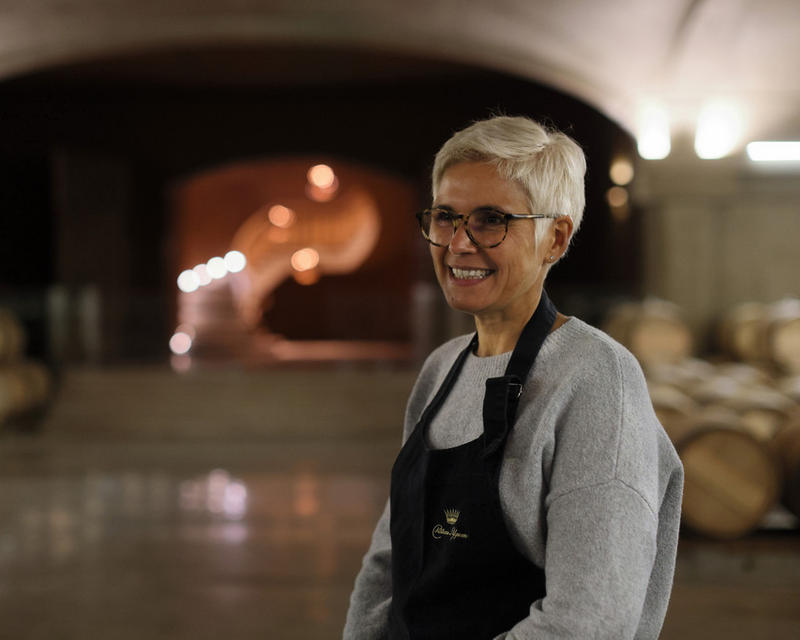
Sandrine Garbay has worked at Yquem since 1994, holding the role of Cellar Master since 1998
How did you come to work at Château d’Yquem?
Sandrine I came to Yquem in 1994 with a background in oenology. I was initially responsible for the laboratory, working on the quality control side. I learned about the role of Cellar Master under Guy Latrille, the former Cellar Master at Yquem. He taught me a lot about the work of sweet winemaking, which is so particular and specific. When he retired in 1998, I stepped up into the role.
My family is not in the wine business. I decided to study oenology when I was 18. It was really my love for chemistry, biochemistry and microbiology that brought me here – that was my principal interest. I love oenology because of my love for the sciences, then I learned to love the wine.
Lorenzo My background is a little different. I’m Italian. I joined Yquem over a year ago. For almost all my working life, I’ve either been involved with French wineries abroad or wineries in Bordeaux. Here at Yquem, I look after the technical side in the vineyard and the winery, and act as the right hand of Pierre Lurton [CEO of Yquem] in the day-to-day management of the estate.
Ever since the beginning, when I studied viticulture and oenology in Pisa, I knew that I wanted to finish my education in Bordeaux. I’ve always been drawn to the French idea of the grand vin – of what a great wine means. Bordeaux resonates with me because I find the approach here very interesting, and the respect for those values behind a great wine.
The region has been producing great wines for over 200 years, and you feel that the moment you step into the city. It’s that sense of winemaking heritage.
What are the factors that influence the winemaking of Yquem?
Lorenzo There are various elements that put Yquem in its unique position, which I would summarise in three categories: the climate, the soil and the human aspect.
Firstly, we have a diversity of soil here which is really uncommon, contributing to the complexity of the grapes. Secondly, we have the right climatic conditions for the development of noble rot, thanks to this humidity that is present throughout the region. These are also good conditions that allow concentration to happen: for botrytis to stop, and concentrate the aromas and sugars in the grapes.
Then, there’s the human aspect – this continuity of the principles of Yquem. One is about this idea of balance and consistency of style. There’s also what I’d like to call the “principle of excellence”. Here at Yquem, there is no second wine – when a vintage isn’t good enough, we don’t make any Yquem. That might seem like a big risk for a winery, but in my opinion, it has contributed to the consistency of our high standard. It puts pressure on the technical teams to always aim for the best.
We’ve never looked for shortcuts to produce these wines: the grapes have always been harvested using the triage method of manual picking and sorting; and we never add anything to the wine to achieve concentration of sugar and flavour.
There is a model here. There’s a definition of Yquem, and we always maintain consistency. We’re not looking to adapt or change the style based on what the market wants. I think some of this comes from the fact that Yquem was in the same family for 400 years, so there’s always been this consistency of ownership. We really feel this culture of Yquem present in the property, and this is what we try to defend.
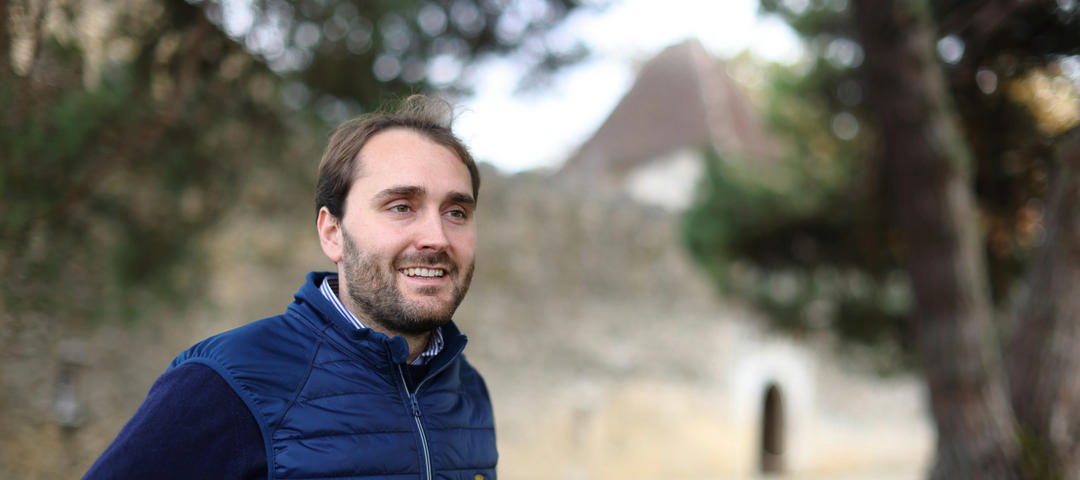
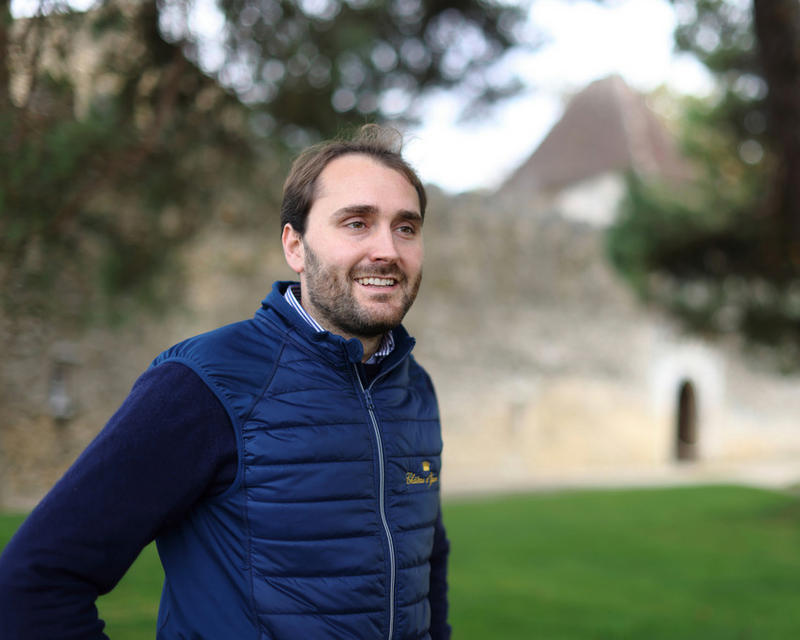
Estate Manager Lorenzo Pasquini joined Yquem over a year ago
Do you feel like the style of Yquem has changed in any way over the last 50 years?
Sandrine There have been gradual changes perhaps, but the style of Yquem remains the same. We maintain the same approach when it comes to the equilibrium between sugar and acidity, with the same goal of balance and elegance. There have been no changes there – just a better management of the original flavours of the wine.
Where do you envisage Yquem heading in the next decade or so?
Lorenzo These are very versatile wines, and the truth is that they are also very emotional. Our job is to reveal the emotion that these wines can give to any type of consumer – whether it’s a young or aged Yquem, whether the person drinking it is more or less knowledgeable. We believe that Yquem has the capacity to please everyone in a certain way – not because the wines are simple, but because they’re universal.
So, our efforts in the next few years will be focused on this too. We want as many people around the world to be able to taste these wines at least once in their life, so they can enter this world of emotion. This is our vision. It’s very simple, based on the purity of the product.
Have there been any winemakers that have left a particular influence on the development of Yquem’s philosophy or style over the years?
Sandrine There is no signature of the winemaker in the wine, not at all. Of course, we try to improve quality every day. But the wine of Yquem is so much stronger than the spirit of the winemaker. We do our best, but at the service of the wine.
Yquem have just released their 2019 vintage, marking the latest in a long line of extraordinary wines. Discover the new release here




